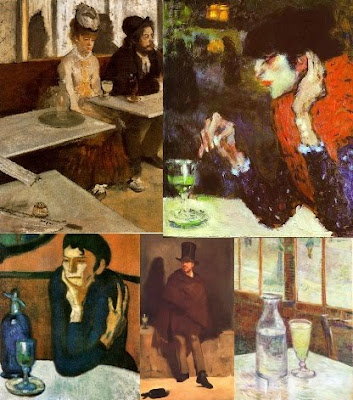
According to Frank Beddor, author of the Looking Glass War, Seeing Redd and ArchEnemy, ALICE IN WONDERLAND was not properly understood to be a fairy tale, but rather a poorly interpretated oral history, not a cloaked allegory, nor even perhaps an analogue. For there was a true girl named Alyss, who faced a much more difficult existence than Alice of Lewis Carroll’s tale. Reverend Charles Dodgson did write about Alice Liddell, but changed things, even distorted things, so much, for reasons I am not altogether clear upon, that Beddor felt the need to tell the “real” story of Alyss. Alyss told her story in confidence, and Dodgson let it spill, but, not directly.
Wonderland is ruled by imagination, and is filled with both dangerous and wonderful enchanted things. The cards of a playing card deck take life, in the various castes and tribes of Wonderland, and the power structures are divided between the throne of the Queen and that of Parliament, with Hearts, Spades, Clubs and Diamonds marking the various divisions of power. Wonderland resembles England prior to most of the Industrial revolution, perhaps in the latest era of the feudal system.
A fierce violent civil war set the kingdom of Queen Heart on edge, but eventually the bloodshed is a memory, and eventually Alyss Heart, is to become Queen. Her bodyguard Hatter Madigan, and some friends are able to help Alyss when a coup d'état led by Aunt Redd occurs. While Hatter and Alyss flee, they are chased, by the assassin in the service of Redd, called, The Cat. Alyss' best friend Dodge Anders, Jack of Diamonds, and military commander General Doppelgänger are deeply sorrowed by her being missing, and search, seemingly endlessly. Hatter and Alyss escape through another dimension, and are separated. Alyss finds her self in Charles Dodgson’s time, and becomes convinced she must forget Wonderland, and stop imagining it into being.
The first book, The Looking Glass War is a book that is used three ways by Beddor. To construct a world for his characters to explore, to set a tone of the intrigues and adventures, and to create a context for all that is to follow. It succeeds at all three of these better perhaps than the writing, which, while very good, is still rather stiff in on occasion.
The second book Seeing Redd is very much a change from the first, in that the tone becomes much more focused and direct. The story centers on Alyss's reign as Queen, and the citizens of her land’s fear of Redd. King Arch is actually the one causing issues, but due to her notoriety, Redd is seen as being behind it all. However, while King Arch is causing trouble, Redd and The Cat have been quietly building forces, for an army to take over Wonderland. In doing so they swipe Arch’s forces as well, and the world’s of Borderland and Wonderland collide.
The Second book is better than the first, in my eyes, the way that Empire Strikes Back was better in the first Star Wars trilogy. The characters are fleshed out, the world is developed ... And there is a growing respect or love for the characters, even Redd and The Cat.... Some might argue that the first book was more settled when the last page turned, but I would argue that is the way trilogies work. Some might argue that this series is dark, and violent even, but it is not so much more than anything you see on PG films and by no means is it gratuitous as it serves a purpose within the story.
In the third book Beddor drops all the gloves, this is a book about war, powerful women, and how King Arch and his allies wish to stop Alyss and her new ally, someone who agrees that power and leadership comes from Imagination, but, who you would think would be an odd choice. I am reluctant to give more of the plot, save to say, this is a final battle, where all the debts and plotlines are sorted and paid. King Arch is a brilliant enemy in this work because while Queen Redd was evil, she is somewhat a cracked mirror of Alyss, while Arch uses power directly, is male, is hungry for what he wishes to achieve, and is not the least bit like Alyss or Redd.
This series moves me, and I have to say, I am generally not a fan of Young Adult works, nor straight fantasy outside of Swords and Sorcery. There is even some whimsy here, and that tends to be the death of me, but, when sprinkled here, it works to perfection. Individually would grade the books B , B+, and A-. For a series it would then be an B+/A-, which, for a generally hard to please guy like me would tend to suggest that if you are a fan of such works, this would work well for you, and, if you aren’t, the quality of writing and subject matter might still work for you.
LEARN MORE AT:
The Looking Glass Wars homepage, Another view of the Looking Glass world, Watch Frank Beddor discuss Alice/Alyss


















